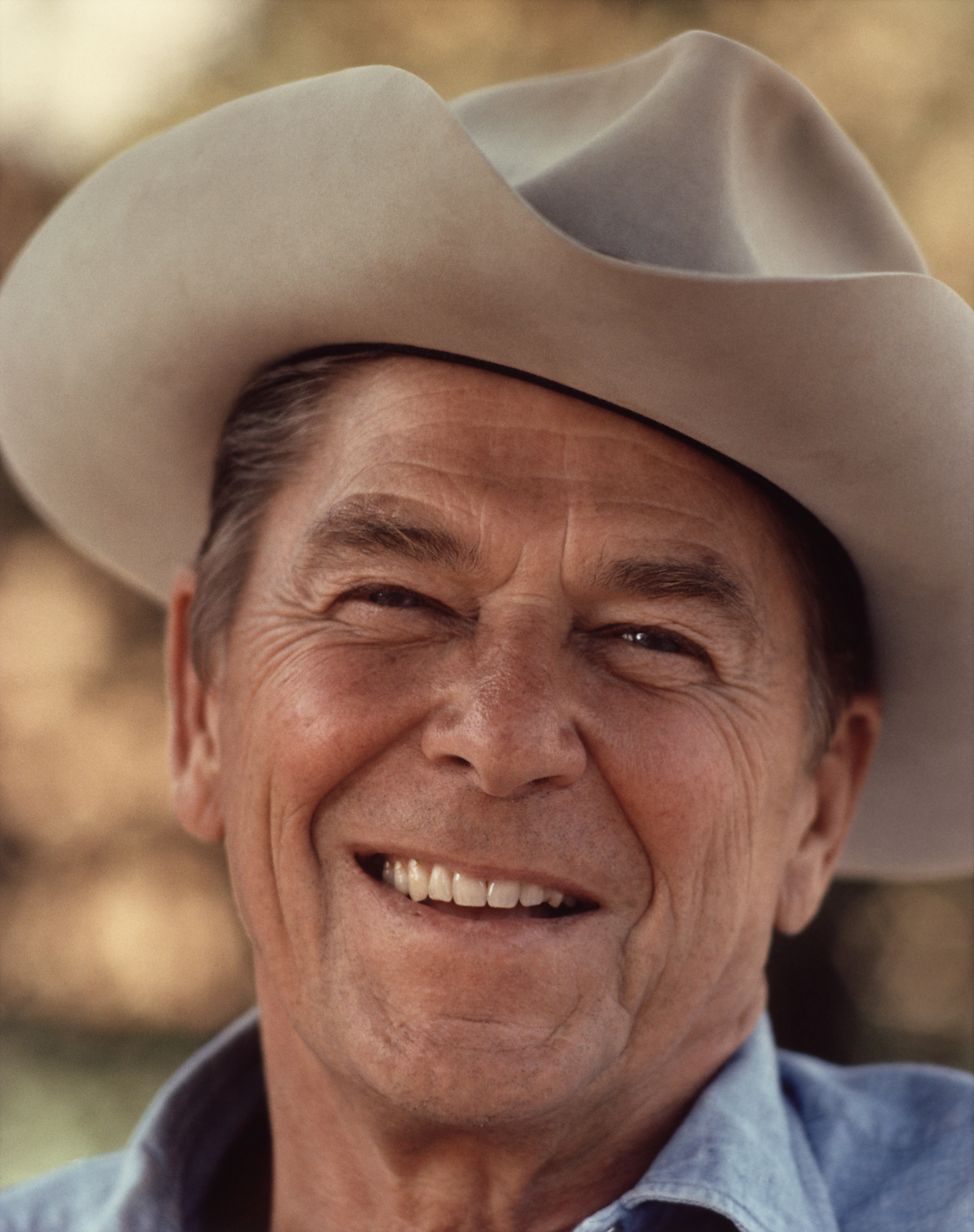title: The Californians date: 2017-11-30 author: HIST 1031 ...
This is some lecture text. It won't appear in the presentation in any way.
Here's an introductory slide outside of the outline that shows Reagan and Nixon together.
We should really have an image of Reagan in a cowboy hat.
He has an image: but a presented one.
Here's slide of that.
Have you ever seen King's Row? Did you know that John Williams ripped off the score for both Star Wars and Superman from it? And Ronnie only gets third billing, because he's not a big star!
You can't talk about Reagan without this cover.
But his political rise was linked with a new feature in US politics after 1975.
Reagan's rise and success had a lot to do with the sudden emergence of taxes as a key issue in state and local politics.
The key event was California Proposition 13. (This will show up as an ID in the outline, because it's bolded in the markdown.
Before the late 1970s, income taxes had not been a defining issue in national politics. Kennedy campagined on cutting them.
The New Deal had been predicated on generating consumer spending.
The idea of Supply-side economics was that rather than promoting consumers, you should promote spenders to spend and invest more money.
(Note that I've tacked the class 'red' on the end of the slide here: I use a stylesheet in my particular version of revealjs so that the text doesn't get washed out.)
The Laffer Curve was written on a napkin. This is the man!
:::slide
You could only make four pictures and then you were in the top bracket. So we all quit working after four pictures and went off to the country.
--Reagan on high marginal taxes. :::
::: {.slide} Major Christian issues in 1978-1980
- Prayer
- Abortion (only later in the decade)
- Tax-exempt status for churches and religious schools. :::
1978 off-year elections demonstrated that the right could organize around abortion as well. Brought catholics on board as well.
Tax exemption especially important because many evangelical schools had emerged in the South as ways to avoid segregation.
Christian Academies with explicitly racist policies, created to circumvent
Reagan had signed the most liberal abortion bill in the nation in 1970. George Bush, his VP, had only recently come around to pro-life.
- So here's a video of the end of his convention speech.
Even more famously, met with Jerry Falwell and other leaders of the right. "I know you can't endorse me," he was quoted as saying. "But . . . I want you to know that I endorse you."
Lee Atwater
::: {.slide} You start out in 1954 by saying, "Nigger, nigger, nigger." By 1968 you can't say "nigger" — that hurts you. Backfires. So you say stuff like forced busing, states' rights and all that stuff. You're getting so abstract now [that] you're talking about cutting taxes, and all these things you're talking about are totally economic things and a byproduct of them is [that] blacks get hurt worse than whites. And subconsciously maybe that is part of it. I'm not saying that. But I'm saying that if it is getting that abstract, and that coded, that we are doing away with the racial problem one way or the other. You follow me — because obviously sitting around saying, "We want to cut this," is much more abstract than even the busing thing, and a hell of a lot more abstract than "Nigger, nigger."
Lee Atwater, 1981 :::
::: {.slide} Reagan in Office
- Tax Cuts and Tax Reform
- Increase in Military Spending
- Continued fight against unions (Air Traffic Controllers' Strike)
- Deregulation of Various Industries. :::
Relatively popular president in office; like Nixon, hobbled by scandals at the end.
Iran Contra: secretly selling missiles to Iran, which was the United States' primary foe in the middle east at the time; using the money to fund a right-wing paramilitary insurgency in Nicaragua against a socialist.
::: {.slide} Some Contested issues, 1980 - 2008:
- Health Care (Dems want)
- Tax Cuts (Reps want)
- Cutting New Deal and Great Society Programs.
- Abortion
- Gay Rights :::
::: {.slide} Some uncontested Issues, 1980 - 2008:
- Free trade (it's good!)
- Deregulation
- Immigration :::
::: {.slide} Some dead issues, 1980 - 2008:
- Unions (they're going away)
- Segregation (it's over) :::
Paradoxically, presidents are evaluated more and more in their effects on the economy even as the levers they have to affect jobs are taken more and more away.
::: {.slide} Major Deregulatory Moves:
- Airlines (1978)
- Railroads (1980)
- AT&T Antitrust breakup (1982)
- Removal of Equal Time doctrines for TV, 1987
- Repeal and circumvention of rules about banking sector (1998-1999) :::
Bill Clinton
The Third Way






